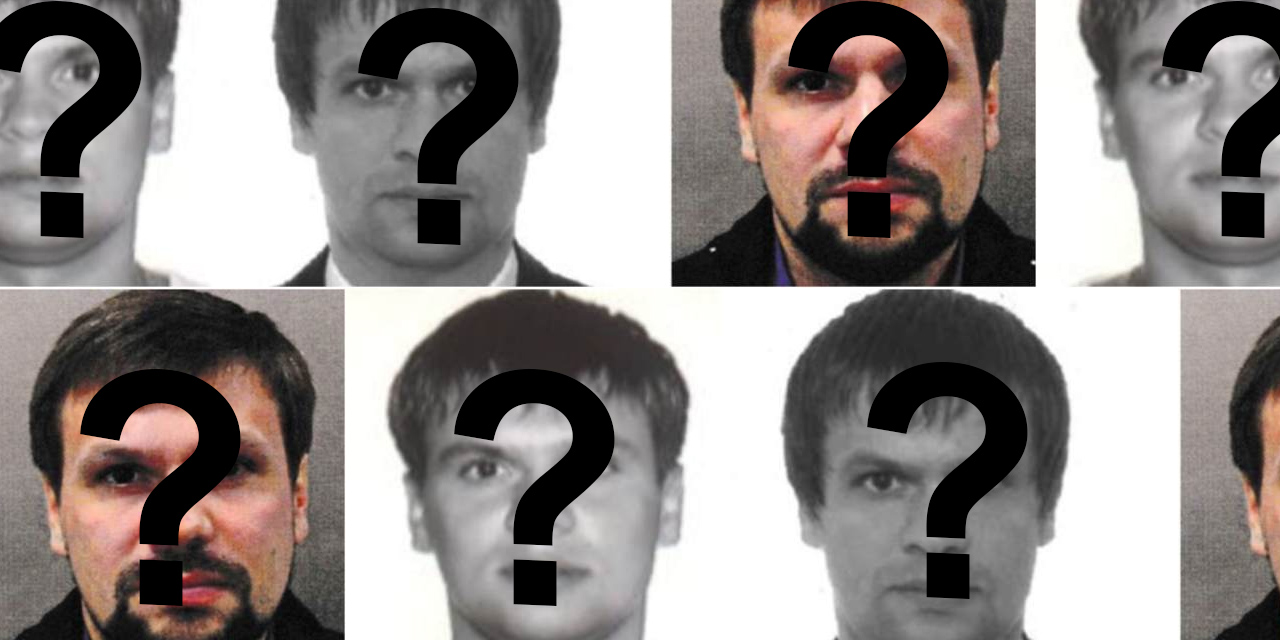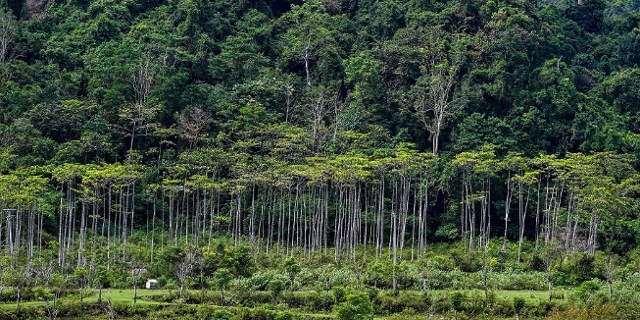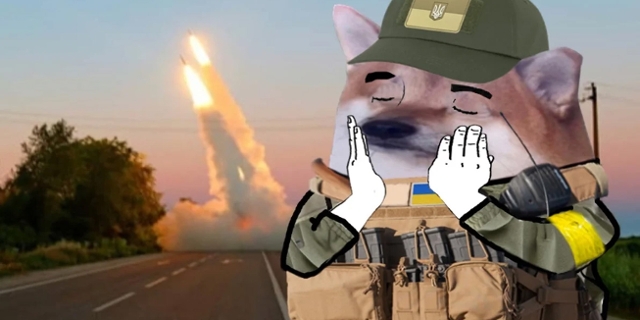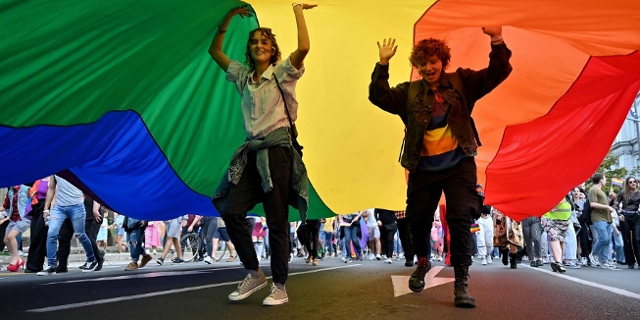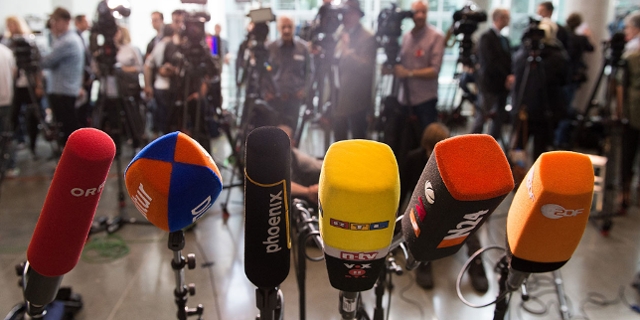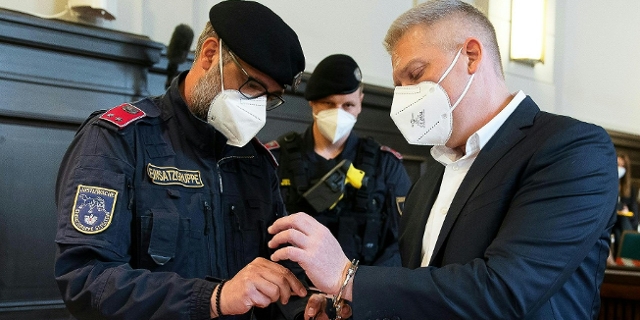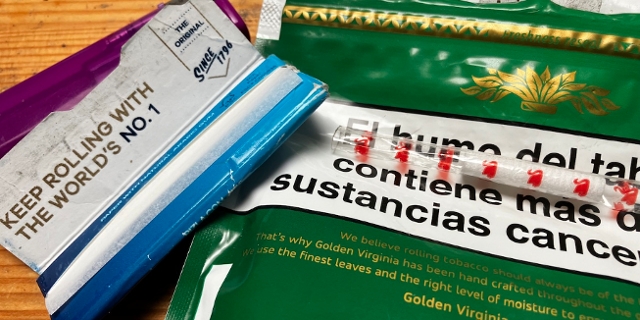Citizen forensic journalism: those who dare to bell the cat
It turns out, apparently, that the man who had been identified by UK investigators as Ruslan Boshirov and described by Russian president Vladmir Putin as a civilian was in fact an intelligence officer by the name of Colonel Anatoliy Chepiga.
Bellingcat describes itself as “the home of online investigations” which “ brings together contributors who specialise in open source and social media investigation” to “investigate a variety of subjects.” Its name comes from the phrase “belling the cat”, meaning to perform a dangerous or difficult task.
Joanna Bostock spoke to Bellingcat’s lead investigator on the case, Moritz Rakuszitzky:
Why did Bellingcat decide to investigate the identity of the alleged suspects in the Skripal poisoning?
Well, that is what we like to do, which is take a little scrap of publicly available information and try to find the whole story behind it. We’ve done it before with Syria, with the MH17 investigation. So when the British authorities published the photos and the names with the suggestion that they don’t believe these are the real names, that was something we immediately as a team jumped on and decided we wanted to try to find the real guys behind them. So having some experience in browsing through Russian data bases and scraping for information in Russia from our prior reports on MH17 but also on Russian operations in Ukraine, we used the same databases and we started looking for data on these two gentlemen. The first part of the investigation arrived at proof that those are not their real names and proof that they are agents of at least one of the security services. In the second part of the investigation we concluded that they are agents of the GRU, the military intelligence service, which was totally based on documents from Russian passport registers that showed that they don’t have regular passports that a civilian would have. They have missing data, they have missing years of records, they have unregistered passports, passports on which they travel are not reflected in their passport file, but crucially there were stamps on their passport files that instructed whoever’s working with the database to not release information to anybody, and in case of questions to call a number. And we identified that that number belongs to the military intelligence of the Ministry of Defence.
Is all of this information available to anybody who knows where to look?
Yes. All of this information is available for anybody eager enough to get it. This information should not be available, but it is. There are literally hundreds of databases that have been leaked over the last fifteen years to torrent sites, to black markets in Russia and so on, they are freely available, policemen are making money by selling them, other government officials are making money of selling them. So this information is floating out there in the form of literally gigabytes of compressed data in torrent form. Over the last four years we’ve downloaded many of those databases. We verify that they’re authentic and we’re using them.
How many people were involved in the investigation?
On this particular investigation we had a core team of three people and a total team of 6 or 7 people who contributed. Some are specialists in data mining, others are specialists in social profile reconnaissance – finding hidden profiles and related profiles, some of them are military specialists who have studied the Russian military out of interest or as part of their career, some are journalists. So that’s the combination of skills that have worked on this.
So basically it took a handful of people with ingenuity a very short space of time to get this information …
Correct, and this is what Russian authorities cannot comprehend or believe, because they think this is not possible and therefore somebody must have leaked this information to us. We wish that were the case, but what Russia doesn’t seem to understand is that western police agencies and security services do not easily breach their own laws the way it happens in Russia. Even though we have made many attempts to receive inside information, both on the MH17 case and on other cases of importance, the government doesn’t leak such information so we had to do everything on our own but yes, it is possible.
How do you feel now that you’ve actually established what you’ve established?
We can’t stop now can we? We’ve taken the lead. The way we handled this investigation is also unprecedented because we issued our findings in real time. At the beginning some of my colleagues thought that was a bad idea and wanted to wait and make one big report at the end, the way we usually do it at Bellingcat, but it worked out perfectly because as soon as we published a piece of information such as the fact that they’re GRU which is what we published two weeks ago, other media, Russian media jumped on the case and started looking for additional details and adding on to the story. So it became almost like a joint crowdsourced – media crowdsourced - investigation. At this point we have seven different publications that have added to this including western publications. For example: the phone number that we didn’t know to whom it belonged which was marked on one of the passport dossiers – a journalist from The Independent picked up the phone and called that number by adding a prefix for Moscow and spoke to somebody at the Russian Ministry of Defence. This is a perfect example of almost unprecedented crowdsourcing of journalistic work in real time.
What’s your next project?
Of course we have to finish this investigation by establishing the real identity of the second person, “Aleksander Petrov”. And we are working on a case that emerged out of both MH17 and this case where we have identified that a government in Europe, it’s pretty easy to guess which one, has tried to infiltrate the visa issue systems for west European countries. That’s a topic of concern to all western countries including Austria because that infiltration also affects issue of visas to Austrians to Russia and inversely. That’s a topic that we will be working on for the next two weeks.
How is Bellingcat funded?
Well I fund my own work, it’s completely voluntary-based for most of us. There is a core team of four or five people who are in charge of administration at Bellingcat including the founder Elliot and a few other researchers who are now on the payroll but for many years were also volunteers. But most of the team – about 25 people – are volunteers who contribute out of love for forensic journalism. Recently there have been grants made available to Bellingcat from a number of international organisation just because of the appreciate for what it has done in Syria and MH17 but none of that is used to pay for work like this, apart for small costs like travel tickets which sometimes get reimbursed. Funding is really peanuts in this case, it’s all done out of our homes and our offices in our spare time.
People are using open source investigation to examine all sorts of different things – is this something we’re going to see a lot more of in the future?
Yes, it already exists in much larger quantities than is reported, but the topics are not as sexy, so to speak. We’ve done a lot on Syria, on chemical weapons, starting back in 2013, and I think now it’s getting the recognition that it does provide real results, real data, sometimes before the government can react, often validating what may be conflicting narratives from governments that have a political interest. So I think it will be more appreciated and there will be more of it done.
Governments have much better tools that we do to find the real facts, but for various reasons they are not at liberty to release them for much longer than we are. There is a judicial process; there are political interests to not release data. That is a time gap, a censorship gap that we don’t have to live by and that’s why we think we and others who do this kind of detailed forensic journalism can make a difference. Rather than report what governments say they have found, you just go out there and either find it yourself or validate what the government has said.
Publiziert am 28.09.2018







